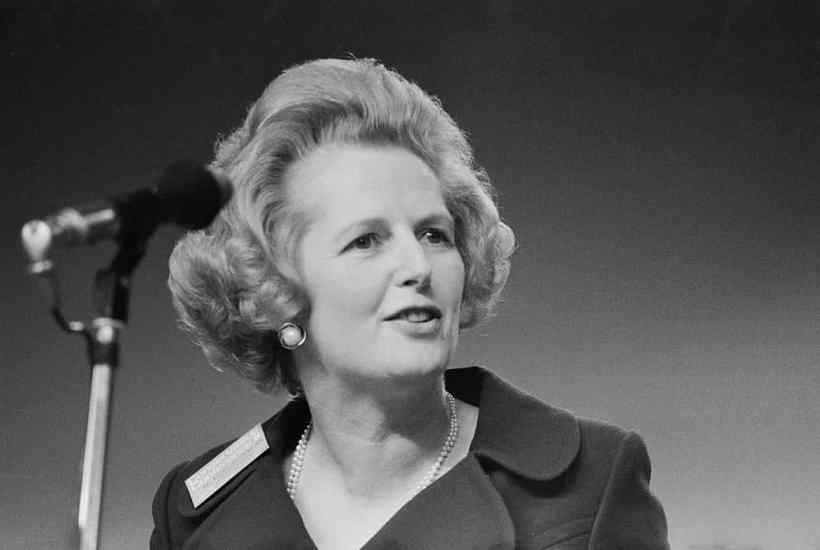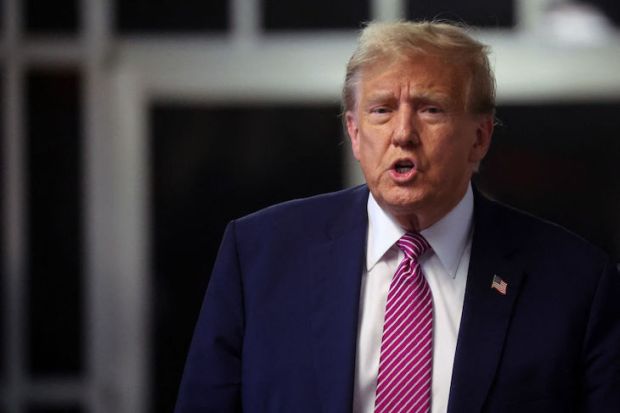At least one groundless anxiety has surfaced during the Tory leadership contest. It concerns Boris Johnson’s future and the fear that he will try to undermine his successor, in the way Margaret Thatcher treated John Major.
But that ought to be the least of the party’s anxieties. It is true that Boris will not display any loyalty to the new leader, or to the party – or indeed to the country. If he were to give an honest response, it would be a simple one: ‘What’s in it for me?’ He needs money. Freed from the constraints of Downing Street, he will want to have fun (watch him, Carrie). But this will all lead him, not towards serious political engagement, but to the light entertainment industry.
He is not another Margaret Thatcher any more than he is a second Winston Churchill. If he decides to return to his life of Shakespeare, he might recognise himself in a couple of characters: Bottom the Weaver, or either Stephano or Trinculo, who take part in a risible plot against Prospero. There could also be a hint of Don John in Much Ado – there is a black side to Boris’s character. But great figures shaping great events? Hardly.
Yet even if Boris will not try to be a second Thatcher, this does not mean that her presence is not felt in the Tory leadership election. It can already be seen, in dubious claims that unqualified candidates are really her heir, because they can parrot away about tax cuts now.
Even though the Lady herself would have known how to deal with calls for unfunded tax cuts, her political ghost is still restless: the myths which still surround her legacy are still potent.
To some extent, this is inevitable. She was the party’s – and the nation’s – greatest peacetime premier. Her influence was transformative. It is not surprising that when difficulties arise, there is a widespread nostalgia: if only we could find a second Thatcher. All this gains extra force from the way she left office, electorally undefeated, after a brutally sudden defenestration. The party seemed to have committed matricide, and suffered long-term psychological consequences. (It is true, of course, that Boris Johnson did not lose an election. But he only beat Jeremy Corbyn, before falling victim to the most formidable political opponent he had ever faced: himself.)
Although Margaret Thatcher’s greatness can still dazzle Tory loyalists a generation after her departure, dazzlement can impair political judgment. She was certainly formidable. She was not infallible. She was the Iron Lady. But she knew when to compromise. She recaptured the Falklands and defeated Arthur Scargill. She also did a deal with China over Hong Kong. She signed the Anglo-Irish Agreement and the European Single Act, while accepting arrangements which meant that the UK was still a significant net contributor to the EU’s budget.
After one of the early toings and froings over that budget, she declared: ‘In every negotiation there comes the best possible point to settle: this was it.’ Moreover, she not only used the fruits of economic growth to cut taxes. She also increased public spending. The so-called Thatcherite ‘cuts’ were largely a figment of leftist propaganda. If some had said to her that politics was the art of the possible, she would have chided them for lack of ambition. To an extent, she would have been justified, for she pushed back the frontiers of the possible. This does not mean that she had abolished them. As PM, she was always well-grounded in reality.
Once she lost office, that ceased to be the case. Bruised by the circumstances of her departure, forced to watch the liberation of Kuwait as a mere spectator, she went on producing large quantities of adrenalin which she could no longer consume. This did not improve her judgment, especially over the Maastricht Treaty. Charles Powell, her great Private Secretary and one of the most outstanding public servants in the post-war era, believes that she would have signed Maastricht if she had negotiated it. The two opt-outs – the single currency and the social chapter – plus the prospects for enlargement which ought to have weakened Brussels’ powers, made it on balance a satisfactory outcome.
In government, she would have seen that. When she had in effect moved into opposition, she lost her political balance and set about helping to turn John Major’s premiership into a Calvary, with Tony Blair ready to pounce and benefit.
So how should the Tories choose a leader now without being overwhelmed by her legacy? First of all, the party should look for realism. We have got to grow our way out of the current problems. We must also beware of inflation and of fiscal irresponsibility. Realism is the key. It is easy to sound optimistic and indulge in scatter-gun optimism. It will be much harder to think a way through the storm so that it will be possible to cut tax. Realism is the route to responsibility and to recovery. In her prime, Margaret Thatcher would have known that and preached it. It is in that spirit that the leadership candidates should be assessed.
Got something to add? Join the discussion and comment below.
Get 10 issues for just $10
Subscribe to The Spectator Australia today for the next 10 magazine issues, plus full online access, for just $10.





















Comments
Don't miss out
Join the conversation with other Spectator Australia readers. Subscribe to leave a comment.
SUBSCRIBEAlready a subscriber? Log in